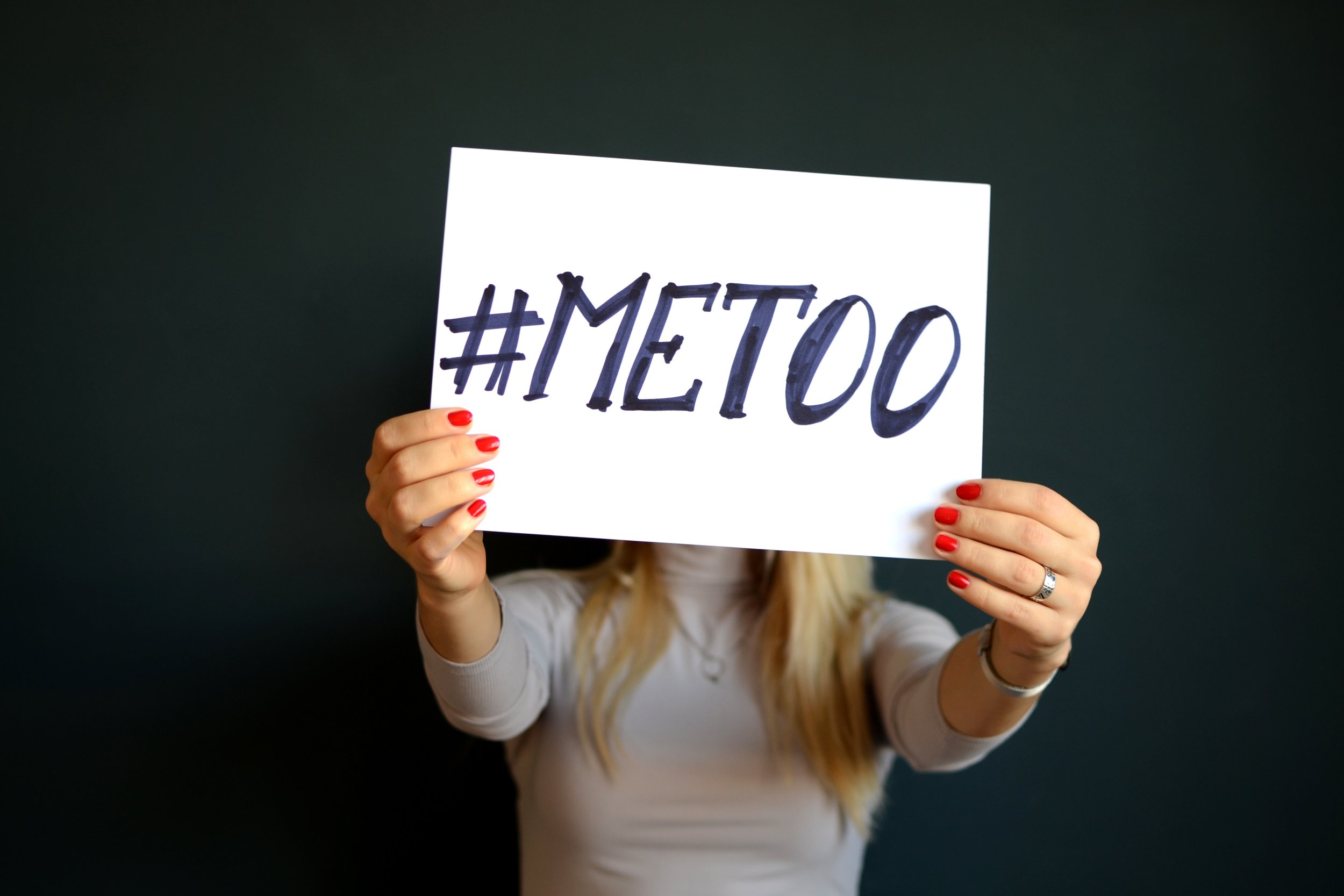Good intentions for sexual-assault victims leads to unequal justice for accused under Bill C-51
Stories of sexual assault are dominating the media right now. Between the Harvey Weinstein allegations and the #MeToo campaign, survivors of sexual violence are banding together and speaking up. They are doing so, in part, in hopes of shattering the culture of silence that has allowed these injustices to go on for far too long.
Many factors contribute to the proliferation of sexual violence. One of which is the perception that victims cannot properly access justice through our existing criminal justice system.

In an attempt to address this, our federal government has introduced amendments to the Criminal Code. These amendments are embodied in Bill C-51, which seeks to expand existing rape-shield provisions and provide broader rights to victims in the course of criminal proceedings.
he spirit of this bill is commendable. The goals it seeks to achieve are valid. I want to like it. I want to support it. But sadly, I cannot.
Bill C-51 will not only compromise the rights of an accused person at trial, it will also create systemic delays that will frustrate its very purpose. Perhaps most disturbingly, though, is that it is likely to have the unintended affect of further marginalizing already marginalized individuals.
My first concern with this bill has to do with the expansion of so-called rape shield laws. If this bill becomes law, it will create extremely broad disclosure obligations for any person accused of sexual assault. These obligations do not exist for any other crime.
This would mean that the accused would have to reveal their defence strategies prior to the trial. They would have to make any evidence that they wish to adduce at trial known to the prosecutor, the judge and the complainant well in advance of the trial date. This will extend beyond evidence related to victim’s sexual history and apply to all records and witnesses. It means that things like e-mails, text messages and photographs could be captured by this provision.
After the information is disclosed, the judge will then be required to weigh a number of factors, including extensive public-interest concerns and the victim’s privacy rights, prior to determining if it can be presented at trial. If it is found to be inadmissible, the accused will be prevented from relying on it. This means that they will be effectively prevented from mounting an otherwise potentially viable defence in the face of serious, criminal accusations.
If it is found to be admissible, it means that the complainant will have been alerted to it—at length. It means that a dishonest complainant could have ample opportunity to tailor their evidence, amend it and change their story to better support an untrue version of events. It puts the accused at an obvious disadvantage.
In either outcome, there are significant concerns for the administration of justice.
A criminal trial is meant to serve as an impartial, truth-seeking process.
This provision undermines this process in its entirety. It goes beyond combatting harmful stereotypes about sexuality by excluding irrelevant evidence about sexual reputation and history and potentially precludes and compromises real defences, supported by tangible evidence.
This process is also likely to contribute to delays in a court system that is already overburdened.
More derailment on the road to accessing justice is likely to further dissuade people from embarking on the journey altogether. It is also likely to increase the number of cases that are dropped due to unconstitutional time constraints. This is sure to frustrate the very purpose of the bill altogether.
Client Testimonials
Read more reviews from past clients:
Google Reviews or Lawyer Ratingz
Dealing with the Sarah Leamon Law Group was an absolute pleasure. They were friendly and efficient in communicating with me, and dealt with my case in a timely manner. They were thorough and meticulous in putting together a strong case that resulted in a WIN. Highly recommend their services.
K.R., Google Review
Sarah Leamon is amazing! She got back to me right away even though she was out of office! She not only jumped on my file quickly, she also got my prohibition reduced from 7 Months to 3 Months a BIG win in my eyes!!
Lawyer Ratingz Review
From my initial contact with Sarah, providing me with detailed information on next steps, to answering all my questions throughout the process and the representation (thank you, Hyemin!), the service offered by Sarah Leamon Law Group was top notch. Would highly recommend.
S.S., Google Review
Hyemin at Sarah leamon law group is a very respectful, kind, and bright lady. Their team was thorough with my case making the process less worrisome. Would recommend 10/10.
M., Google Review
Have had Sarah as my go-to for any and all my traffic issues. She is very compassionate and is excellent at explaining every part of the process and keeping your stress level way down. Multiple times ive hired Sarah and i am always completely confident she will get the best result, as she has done time and time again. wouldn't go anywhere else, definitely #1 in my eyes!
M.W., Google Review
Dealing with the Sarah Leamon Law Group was an absolute pleasure. They were friendly and efficient in communicating with me, and dealt with my case in a timely manner. They were thorough and meticulous in putting together a strong case that resulted in a WIN. Highly recommend their services.
K.R., Google Review
Sarah Leamon is amazing! She got back to me right away even though she was out of office! She not only jumped on my file quickly, she also got my prohibition reduced from 7 Months to 3 Months a BIG win in my eyes!!
Lawyer Ratingz Review
From my initial contact with Sarah, providing me with detailed information on next steps, to answering all my questions throughout the process and the representation (thank you, Hyemin!), the service offered by Sarah Leamon Law Group was top notch. Would highly recommend.
S.S., Google Review
Hyemin at Sarah leamon law group is a very respectful, kind, and bright lady. Their team was thorough with my case making the process less worrisome. Would recommend 10/10.
M., Google Review
Have had Sarah as my go-to for any and all my traffic issues. She is very compassionate and is excellent at explaining every part of the process and keeping your stress level way down. Multiple times ive hired Sarah and i am always completely confident she will get the best result, as she has done time and time again. wouldn't go anywhere else, definitely #1 in my eyes!
M.W., Google Review
Dealing with the Sarah Leamon Law Group was an absolute pleasure. They were friendly and efficient in communicating with me, and dealt with my case in a timely manner. They were thorough and meticulous in putting together a strong case that resulted in a WIN. Highly recommend their services.
K.R., Google Review
Sarah Leamon is amazing! She got back to me right away even though she was out of office! She not only jumped on my file quickly, she also got my prohibition reduced from 7 Months to 3 Months a BIG win in my eyes!!
Lawyer Ratingz Review
From my initial contact with Sarah, providing me with detailed information on next steps, to answering all my questions throughout the process and the representation (thank you, Hyemin!), the service offered by Sarah Leamon Law Group was top notch. Would highly recommend.
S.S., Google Review
Hyemin at Sarah leamon law group is a very respectful, kind, and bright lady. Their team was thorough with my case making the process less worrisome. Would recommend 10/10.
M., Google Review
Have had Sarah as my go-to for any and all my traffic issues. She is very compassionate and is excellent at explaining every part of the process and keeping your stress level way down. Multiple times ive hired Sarah and i am always completely confident she will get the best result, as she has done time and time again. wouldn't go anywhere else, definitely #1 in my eyes!
M.W., Google Review
But, perhaps the most concerning aspect of this bill is the provision that allows for complainants in sexual assault cases to be represented by their own counsel—independent, third-party lawyers. It is not something that complainants in any other criminal cases are entitled to.
The rationale behind this is that those who allege sexual assault are a very special category of complainant with very special needs. As such, they require independent legal advice, which Crown counsel cannot provide them, and which other complainants in other matters do not need.
While it might sound like a good idea on the surface, it’s not.
This allowance assumes that victims of sexual assault are inherently different from, and more sensitive than, other victims. It oversimplifies victimization.
It also assumes that victims of crimes where there is no sexual element are somehow victimized to a lesser extent and therefore not in need of special support services. There is no rational basis for extending specialized care to a victim of sexual assault, and not doing the same for a victim of regular spousal assault, for example. It discounts and trivializes the cycle of violence and complex interpersonal nature of such crimes. In turn, it will further contribute to a culture that continues to perpetrate sexual and domestic violence.
And without adequate government funding, there are serious concerns about how complainants are expected to access such counsel, in any event. Public funds are limited, which is evidenced by the fact that legal-aid programs are already chronically underfunded.
More likely than not, it will be up to the complainants themselves to secure such counsel.
This will mean that more privileged complainants will experience greater access to justice. If you have the money to hire a lawyer, you’ll get a better result. This is a disturbing thought—and particularly so when we consider that there is a positive relationship between one’s degree of marginalization and the chances of falling victim to sexual assault. It is also disturbing to think about in the context of a criminal justice system, which is supposed to operate blindly and impartially for all people.
In the unlikely event that the public purse can be extended to create these programs, there could be problems as well.
If adequate resources are not first allocated to legal aid, the rights of the accused could be unfairly compromised. An accused person could be left unrepresented at trial, while a complainant has the aid of both Crown counsel and an independent lawyer. Again, this would be unthinkable in an ethical and fair justice system.
At the end of the day, Bill C-51 is misguided in that it seeks to solve a very serious social issue by altering the rules of our judicial system. The prevalence of sexual assault, and the impact that it has on our communities, is not a judicial problem. It does not need a judicial solution.
Instead, we need to work together to change the very fabric of our society. We need to create a more equitable society that will not sit complicit in the face of injustice and violence. We need real social change.
Unfortunately, Bill C-51 just isn’t it.




